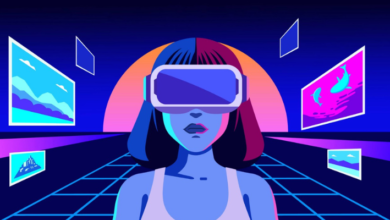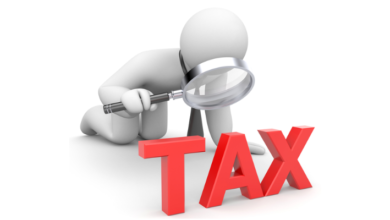What Does Being ‘Metaverse-Ready’ Mean For B2B Brands?
The Metaverse, by definition, is a collection of virtual 3D worlds. What started as a mere visionary concept has rapidly evolved into a $29.1 billion industry in 2020, with Forbes predicting a $1 trillion revenue potential in the upcoming years. The Metaverse is a concept that Facebook – now called Meta – is spearheading. Brands like Nike, Gucci, Disney, and McDonald’s have also made their move onto the Metaverse by creating virtual stores and experiences – Nikeland is one to check out.
The Metaverse is for everyone, so how can B2B brands capitalize on the potential of the Metaverse. Read on to find out.
Building Virtual Offices And Resorts
Bill Gates made a comment in 2021 about how he thinks two-thirds of business meetings will soon happen in the Metaverse. During the pandemic, many businesses latched onto the potential of creating virtual offices as everyone worked from home – it turns out that was just the beginning.
Brands like Nike recognized the potential and spent millions on creating Nikeland – one of the first virtual branded resorts for Nike customers. Now, the headlines center around B2B brands and their journey into the Metaverse.
And, when you consider that one study revealed 73% of B2B buyers want a personalized experience similar to B2C – now is the time to invest heavily and reap the rewards of the Metaverse. The only downside – plots of land big enough to house a corporation resort cost millions. The upside – there’s a potential million dollars or more worth of revenue sitting in the Metaverse.
Creating A Buyer-Centric Virtual Universe
Buyer-centric, consumer-centric – it’s all the same and has long been the focal point for any brand. There are already excellent strategies in place that foster a buyer-centric approach, like loyalty programs, of which 89% of buyers say increases loyalty. Brands like Incentive Smart have developed reward-based software to support this – which you’ll find here www.incentivesmart.com/customer-loyalty – that helps B2B brands elevate their buyer experience. The next step is to take this reward-based shopping to the Metaverse.
There are some interesting statistics related to the need for a buyer-centric business model and how the Metaverse might support it. 77% of buyers would rather conduct business via a video call than a telephone call or a face-to-face meeting. The Metaverse could facilitate that with the use of virtual avatars. And 70% of buyers are open to making new, fully remote, self-serve purchases above $50,000. Again, the Metaverse and virtual resorts, warehouses, and offices can facilitate that.
The Metaverse will essentially allow a B2B brand to create a virtual version of their business. Everything from the office spaces to a warehouse can be mapped the same in the Metaverse.
Take Inspiration From Brands Already In The Metaverse
Naturally, some brands will have reservations about investing millions into a virtual world – which is why it’s important to draw inspiration from brands already in the Metaverse. At present, it’s B2C brands leading the drive to virtual lands.
Disney recently signed a million-dollar patent for a “virtual-world simulator” that’ll bring 3D versions of its parks to the Metaverse. Hyundai launched Mobility Adventure that lets customers view and experience their mobility features using avatars. Gucci created Gucci Garden that allows users to wander through and their avatars acquire items of clothing along the way.
What this proves is it’s possible to create virtual worlds that mimic or even completely replicate the physical world experience. It provides a chance to explore, browse, and ultimately shop. B2B brands would benefit massively from this experience for their buyers who already only spend 17% of the buying cycle in contact with sales teams.
The Metaverse is the unknown, the relatively unexplored, and the future. Brands and the general public alike have the potential to generate millions of dollars, either as a profit for brands or as a passive income for the general public. Now is the time to explore the expanding Metaverse and see where your B2B brand fits in.






